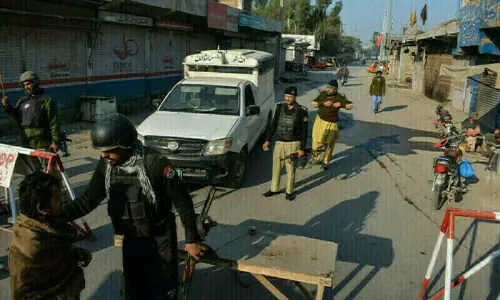ZURICH: FIFA needs to change the culture within the organisation and not just introduce new committees if it is to successfully battle corruption in its ranks, a leading anti-corruption watchdog said on Thursday.
Transparency International said that FIFA's working practices, at least until the last year, had been exposed by the release of a legal document issued by the prosecutor's office in the Swiss canton of Zug on Wednesday.
This showed that ex-FIFA President Joao Havelange and former executive committee member Ricardo Teixeira took multi-million dollar bribes on World Cup deals and that FIFA officials knew about it but did nothing.
“It shows once again that it is not about working on structure and having better rules, it's about the culture and spirit and FIFA has not yet begun to work on that,” Transparency's senior adviser on sport Sylvia Schenk told Reuters.
“It showed the culture and spirit that was prevalent within FIFA until only last year, when there was a small change. It was accepted that officials had taken money and received money in a way which was contradictory to their own obligations towards FIFA.”
Havelange, a Brazilian who was head of FIFA from 1974 to 1998, received a payment of 1.5 million Swiss francs ($1.53 million) in March 1997 from now-defunct sports marketing body ISL, the Swiss prosecutors said.
Teixeira, who led the Brazilian Football Confederation from 1989 until stepping down earlier this year, took 12.7 million francs between 1992 and 1997, the prosecutors said.
ISL sold the commercial rights to broadcast World Cup competitions on behalf of FIFA.
It collapsed with debts of around $300 million in 2001.
FIFA has responded to a string of recent corruption scandals by introducing an audit and compliance committee and reforming its ethics committee, splitting it into two chambers with one to investigate cases and another to judge them and hand out penalties.
The heads of the two chambers are due to be announced by FIFA on Tuesday when president Sepp Blatter is due to face the media for the first time since the release of the document.
Blatter, 76, has worked for FIFA since 1975. The Swiss national was FIFA's General Secretary before succeeding Havelange in 1998.
Schenk said an illustration of the culture prevalent in FIFA was a claim by its legal representative during the case that “in South America and Africa......bribery payments belong to the usual salary of the majority of the population.”
“They (FIFA) have not really understood the message,” said Schenk.
“If you don't work very hard on the culture, then the compliance programme is more for show.”


































